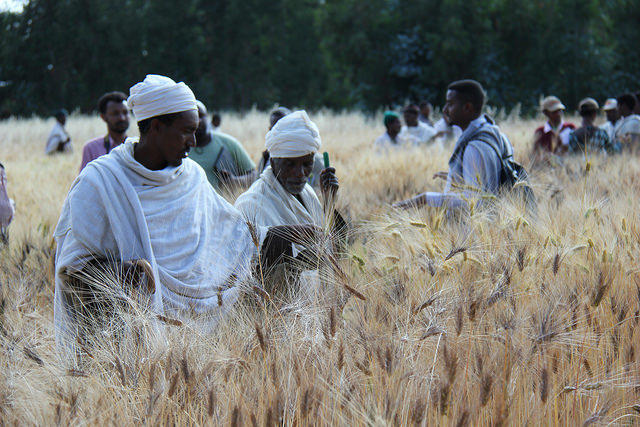Modern science meets traditional knowledge to improve crop breeding

Scientists have partnered with traditional farmers to demonstrate, for the first time, how indigenous knowledge may drive future breeding.
The paradoxical congruence of modern science and traditional knowledge may be the answer to meeting the food needs of the growing world's population. In a recent research experiment in Ethiopia, the two have proven to complement each other genially.
Researchers in Italy and Ethiopia have demonstrated how knowledge embedded in the community culture passed on from one generation to the next for hundreds of years can be measured and repeated to ensure food security.
Although the farmers, having to sustain their households, are extremely knowledgeable and experienced and often cultivating varieties that have shown superior performance to the modern varieties, there is still room for improving yield and quality through breeding. This study supported by Bioversity International and its partners invited farmers to examine 400 wheat varieties in two different locations in Ethiopia and rate the myriad of traits, while the researchers performed genetic analyses. The aim is to pinpoint favorable genetic traits to selectively breed new varieties of durum wheat and barley suited to farmers’ needs and with the potential to adapt to changing climates.
Researchers are confident that this approach could be repeated and adapted elsewhere around the globe to grow crops best suited for the plethora of unique conditions smallholders face.
To find out more read this news story or download the paper: Genome Wide Association Study to Identify the Genetic Base of Smallholder Farmer Preferences of Durum Wheat Traits.
Further reading:
Click here to read the story on Anthropocene.
Read more about Improving Ethiopian durum wheat landraces through breeding and find out how Bioversity International's Seeds 4 Needs initiative in Ethiopia is Integrating farmer and scientist knowledge.
Partners:
This study was carried out in partnership with Scuola Superiore Sant'Anna, Amhara Regional Agricultural Research Institute and Mekelle University.
This research is part of the CGIAR Research Programs on Climate Change, Agriculture and Food Security (CCAFS) and is supported by CGIAR Fund Donors.
Photo: Farmers and researchers observing durum wheat varieties, Ethiopia. Credit: Bioversity International/S.Collins
